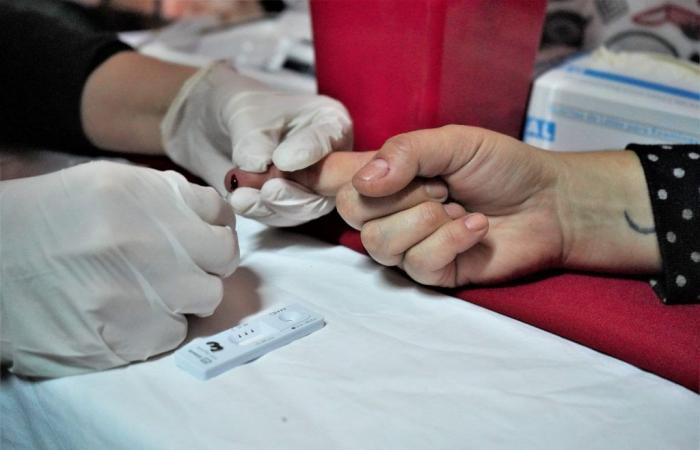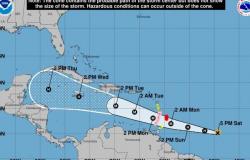Accessing a diagnosis is a right and the only way to do so is through an HIV test.
On National HIV Testing Day, which is celebrated every June 27, the Provincial HIV-AIDS, Sexually Transmitted Infections (STI) and Viral Hepatitis Program of the Provincial Ministry of Health actively promotes testing. or test, a fundamental tool to detect the presence of HIV (Human Immunodeficiency Virus) antibodies. In this sense, the provincial health portfolio works on prevention and timely diagnosis, facilitating clinical and laboratory monitoring.
The only way to know if a person has HIV is through a test. This is a blood test that detects the presence of HIV antibodies, which is free, confidential and can be requested without a doctor’s order at any Public Health establishment.
According to statistical data from the latest national bulletin, in our country, 13% of people with HIV (Human Immunodeficiency Virus) are unaware of their diagnosis. Therefore, the importance of taking the test to access a timely diagnosis, start antiretroviral therapy (ART), achieve an undetectable viral load and reduce the transmission of the virus.
If a negative result is obtained, people can access preventive options such as pre-exposure prophylaxis (PrEP), post-exposure prophylaxis (PEP) and other measures under the combined prevention strategy, such as penile and vaginal condoms.
Among the reasons to take an HIV test, it stands out that:
● HIV infection may not present symptoms and testing or analysis is the only way to detect it.
● You do not need a doctor’s order or fasting to do it.
● It is always better to know. If the result is positive, treatment can begin and a good quality of life can be maintained.
● It’s free.
● It is important to take an HIV test at least once in your life and repeat it in risk situations.
● It is fast: results are obtained in 15 to 20 minutes.
● It is not necessary to be of legal age. From the age of 13 you can request it without the need for parental authorization.
● It is confidential: it is not necessary to provide a name or ID.
● It is voluntary.
According to the registry of the provincial Laboratory Network, during 2023, 12,435 determinations were carried out throughout the province. Diagnostic studies are carried out in the 25 laboratories of the public hospitals and health centers that make up the Network, through various types of tests.
Currently, in the Province, there are 10 Combined Prevention Centers for HIV and Sexually Transmitted Diseases. These are spaces for counseling and testing for HIV and other Sexually Transmitted Diseases (STDs) that are distributed in:
● The City of Neuquén, at the Castro Rendón Hospital (Buenos Aires 450) on Thursdays, from 12 to 2 p.m.; at the San Lorenzo Norte Health Center (Cayastá and Castelli) on Tuesdays, from 9 to 11:30; at the Villa María Health Center (Av. Olascoaga 1,110,) on Tuesdays, from 10 a.m. to 12:30 p.m., at the Valentina Norte Health Center (Paso de los Libres 290) on Mondays, from 8:30 a.m. to 12 p.m.; at the Confluencia Health Center (Tandil and Cacique Calvuqueo) on Thursdays, from 1:30 p.m. to 3:30 p.m. and at the Parque Industrial Health Center (4 and 9 streets) on Thursdays, from 9 a.m. to 11 a.m. and from 1 p.m. to 3 p.m.
● San Martín de los Andes, at the El Arenal Health Center (Los Cerezos corner Los Piñones) on Wednesdays, from 12 to 4 p.m.; and at the local Ramón Carrillo Hospital, on Tuesdays, from 11 a.m. to 1 p.m.
● Cutral Co/Plaza Huincul, at the local Hospital, on Thursdays, from 2 to 4 p.m.
● Zapala, at the local Juan José Pose Hospital, on Thursdays, from 3 to 6 p.m.






